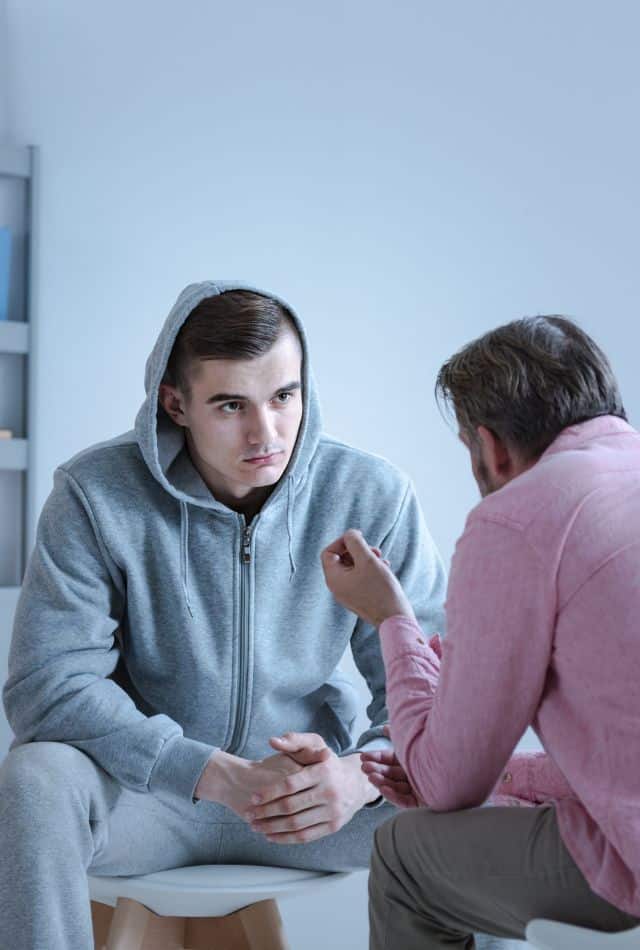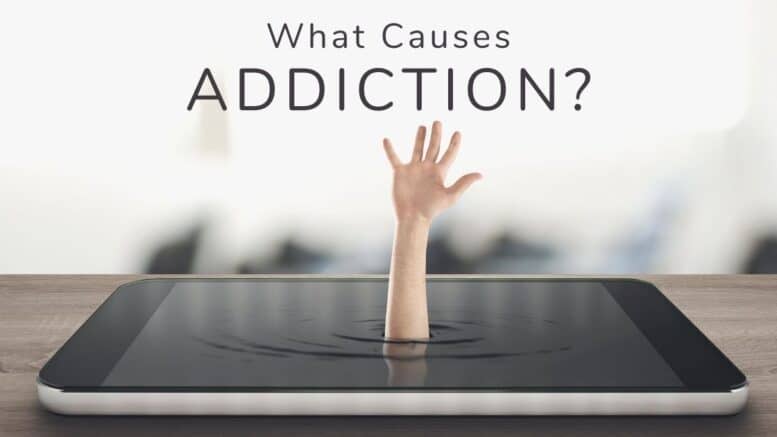What Causes Addiction – Overview
Per the American Psychological Association, Substance Use Disorder (SUD), or addiction, is the inability to stop using harmful substances.
Addiction is giving up everything for one thing. Recovery is giving up one thing for everything.
Even if the outcome is dangerous and life-threatening, the addiction to the substance overrules the consequences.
Understanding Addiction
When you think of addiction, do you think of drugs? It is true that is the main type of addiction, but it is not the only one. There are many other vices that people can become addicted to.
Types of addiction:
- Drugs
- Alcohol
- Food
- Gambling
- Porn
- Shopping
- Work
- Sex
- Internet
- Video games
Why is it that addictions are so hard to break? It’s due to several reasons. Many people abuse substances to fill a void. Many times the void is caused by being uncomfortable with being alone.
Vices help people to feel good temporarily. It distracts them from whatever pain they are avoiding for a moment in time.
Some people, are not necessarily addicted to the vice itself but to the feeling of worth, happiness, or relief they get from the vice.

What Causes Addiction – Understanding Addiction
What Causes Addiction
Trauma
Two out of three people struggling with addiction have experienced trauma at some point in their life. Why is it that so many addicts have a history of trauma? This is due to abnormalities in the brain.
That’s right. Trauma literally changes your brain structure. The folds in your brain become different and the paths taken by neurotransmitters are changed.
Trauma can have many behavioral and cognitive impacts on the brain. It is not uncommon to see substance use or other addictions arise due to heightened cortisol levels.
A person can only take so much stress and uncertainty before needing help.
Unfortunately, people who have been traumatized hate asking for help. This is where self-medication, toxic coping mechanisms, and negative life-changing patterns come into play. It is hard to break these habits once they have formed, as the brain releases feel-good hormones when acting on the vice.
Addiction to addiction becomes a lifelong problem that many fail to realize is the root of their issues and behaviors.
Environmental Factors
Have you ever heard the saying that if you hang out with five similar people, you’ll become the sixth? Well, that is how environmental factors play into addiction.
It does not have to be just situations where someone is feeling pressured by friends. It can be, but not always.
If a child grows up with exposure to drugs and alcohol in the home, they may be more likely to develop substance abuse issues later on in life.
Physical Pain
Many people turn to self-medication as a way to ease physical pain. The more you take pain medication, the more you get used to it. Then you have to up your dose to get any help from the pills.
Eventually, you cannot even stomach the thought of living without the pills because they take the pain away and help you feel more relaxed.
The opioid crisis is now an epidemic. Pain pills are one of the most dangerous addictions out there.
Curiosity
Some people get addicted to a substance or vice purely out of curiosity. Maybe they have friends who are using it or they read something about it on the internet. No matter the case, once curiosity starts, it is very difficult to control it.
Many think, “oh just this once” or “I just want to know what all the fuss is about” when they try it for the first time. It only takes one time to become addicted to the high. It does not matter where the high comes from. People will continue to chase it or want more.
Sometimes the addiction is not to the vice itself but the feeling you get from the vice.
Treatment for Addiction
Many types of treatment helptypes of treatment that help with addiction or SUD. Many times it is a combination of treatments.
The first is a therapeutic intervention. This will be beneficial to help process the underlying issues. There are many types of therapy that can be used to help overcome one’s dependence on a substance.
EMDR (Eye-Movement Desensitization and Reprocessing) therapy helps overcome trauma, while CBT (Cognitive Behavioral Therapy) will help them learn how to process and cope and healthily move forward.
Next is inpatient or outpatient rehab. This will be used in the beginning stages. It helps with detoxing when the user is unstable and cannot keep themselves safe. It is a grueling process to detox off substances, but that is why they are thoroughly watched in rehab.
After that, support groups are very helpful for many recovering addicts.
Being around others they can relate to, a sense of inclusion and understanding, and acceptance by others can do more for a person than many types of therapy can. People just want to know they are not alone and that someone gets where they are coming from.
Conclusion
If you or someone you know is struggling, you can call the SAMSHA Helpline below for more help.
- Trauma
- Environmental factors
- Physical pain
- Curiosity
This means that getting them into therapy and helping them to process the underlying factors will help them to overcome their addiction once and for all.
If you are or know someone who is recovering from addiction, there are grants for recovering addicts provided by the government and nonprofit organizations
References
What Is Addiction? (2021). Psychiatry.Org.
See Also
How to Overcome Body Dysmorphia
How to Overcome Caffeine Addiction

I obtained my Bachelor's of Psychology in 2017 and Masters of Social Work in 2019. I currently work in private practice as a trauma therapist.
